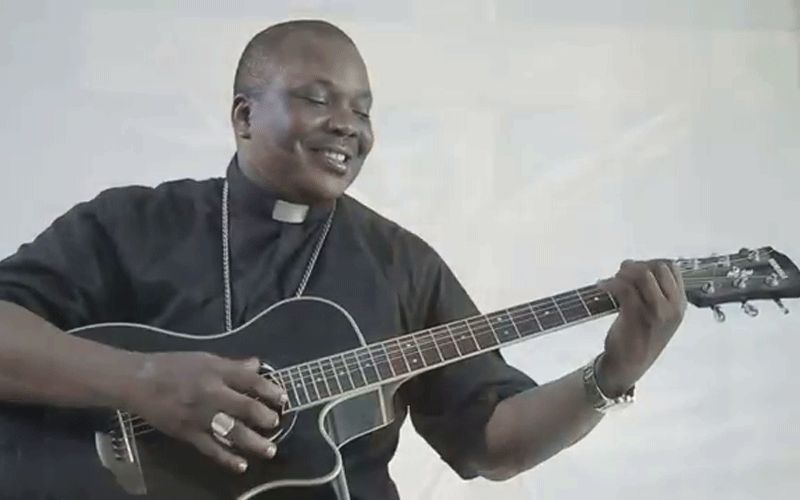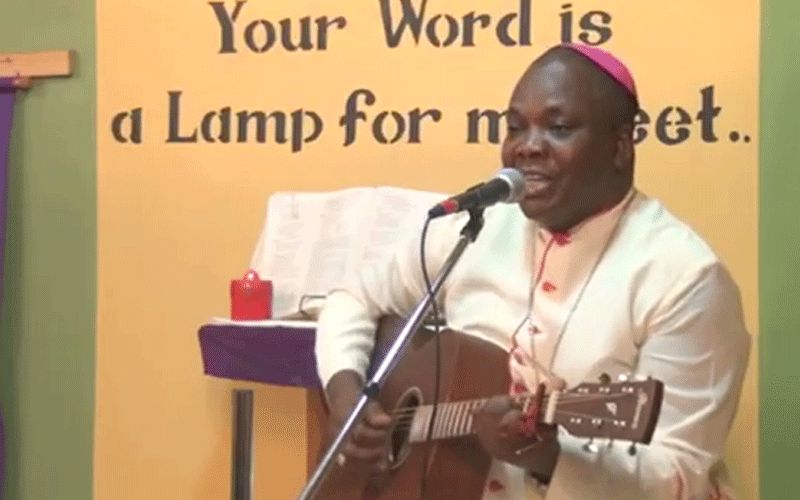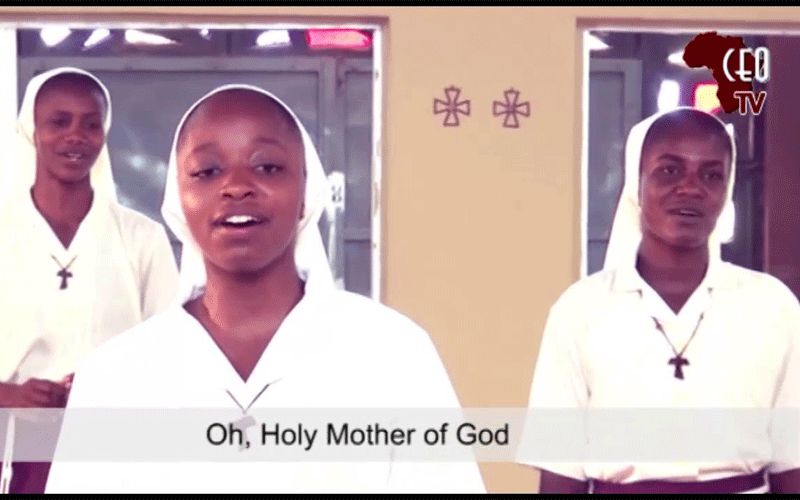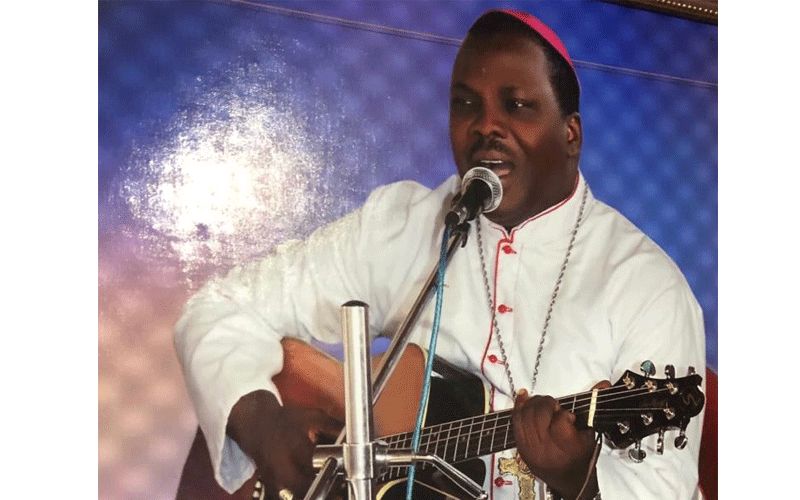The 58-year-old Prelate is not a novice in singing and playing musical instruments. Neither is the COVID-19 recording his first stint in the industry. Divulging his childhood where his interest in music dates from, Bishop Badejo says that he was born in a family of talented people.

“My father practiced music commercially, earning some little money from it and my mother was a very strong choir member in church,” says Bishop Badejo, adding that he was born in a humble family of seven children.
“We were quite poor and we didn’t own any TV or even radio. But every evening after my father came from work, he gathered all of us and we broke into singing, beating chairs, tins in the house so that neighbours watched from our windows,” he says.
Young Badejo’s passion for music was perfected when he joined the seminary and interacted with real musical instruments for the first time. He immediately joined a music class and was trained on music composition, directing and even playing a variety of musical instruments by professionals. Today, Bishop Badejo plays the guitar, Keyboard, Saxophone, drums among other instruments.
(Story continues below)

“My little study room says it all about my love for music and musical instruments. I bring in all musical instruments I can lay my hands on,” he says.
He adds, “I can’t count the number of times I have bought guitars. Every time, I get someone interested in learning how to play the guitar and each time I teach someone how to play it, I give them the instrument. It feels really good to know that my guitars are being played in many places.”
Before his ordination as a priest in 1986 aged 24, Badejo had traversed continents participating in music concerts in Germany, Italy, Spain and France, thanks to his interest in music. He landed most of these opportunities while he served at the Propaganda Fide International College during his theological studies in Rome, Italy.
In his first mission as a Priest at Sts. Peter and Paul Ile-Ife Parish in Osun State, Nigeria where he ministered to university students, Bishop Badejo recalls recording a number of music albums with more than 500 youth, most of them university students who attended Mass at the parish.
His song, “Take my hands”, which he composed to raise awareness on HIV and Aids was a hit back in the 90s when the disease caused a lot of stigmatization against those who were infected. The song, he says, was used in many campaigns around the West African country, which is Africa’s most populous nation.

“While I served at the Catholic Secretariat of Nigeria, I composed a song on AIDs and even now, I still recall how the song was played over and over on radio. The Catholic Church then had a lot of advocacy around the disease and the song was also played during some of these advocacy programs,” Bishop Badejo says, adding that he also released an album dubbed “In God’s Family” that had Catholic teachings about the family.
The Nigerian Bishop says growth of social media has been behind the efficient creation as well as distribution of his music content.
His video clips are short, lasting between 3 and 6 minutes to target his digital consumers.
Everything that goes into a clip takes an average of two days during which the Bishop identifies a scripture passage or a Psalm, gives it a tune and shares it via mobile phone to the rest of the choir group.

“I send them my recorded audio so that they try to familiarize themselves with the melody. We then meet for about three hours to harmonize our singing then package the song to our audiences. It takes me only two days to ensure that the song is ready for sharing on YouTube and on other social media platforms,” he says.
Recording in the time of COVID-19 is intense, requiring a lot of dedication and discipline from the choir members, the Bishop says.
“I am a compulsive worker. Always been. And the sisters I sing with always shower me with compliments but also call me a slave driver because of how I make them do things with dedication,” he says.
The vocal Bishop, known for addressing topical issues that concern the youth, family and migrants, and speaking openly in interreligious dialogue says discipline helps him to juggle music with his other responsibilities as a Local Ordinary.

“It is Gods’ grace,” he says when asked about how he manages to set aside time for music, away from his role as a Bishop, at SECAM where he serves on the Standing Committee and ensuring that the Church in Africa has a voice at CEPACS.
He adds, “It’s by God’s grace that I do all these things. And somewhere between, I still jog every day, visit priests and sisters in their homes and check on the youth and other church groups.”
“I also read and write a lot of personal reflections. But in the background of all this, I play lots of musical instruments and compose many songs,” Bishop Badejo concludes.
This story was first published by ACI Africa on 30 April 2020
Agnes Aineah is a Kenyan journalist with a background in digital and newspaper reporting. She holds a Master of Arts in Digital Journalism from the Aga Khan University, Graduate School of Media and Communications and a Bachelor's Degree in Linguistics, Media and Communications from Kenya's Moi University. Agnes currently serves as a journalist for ACI Africa.
















